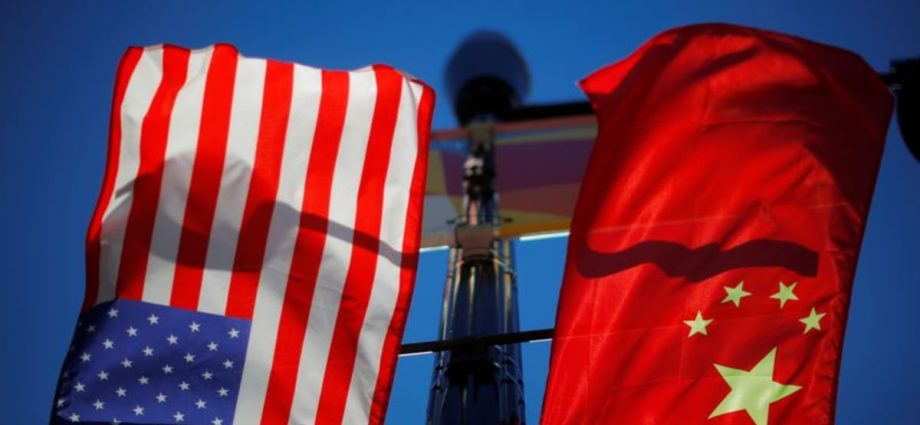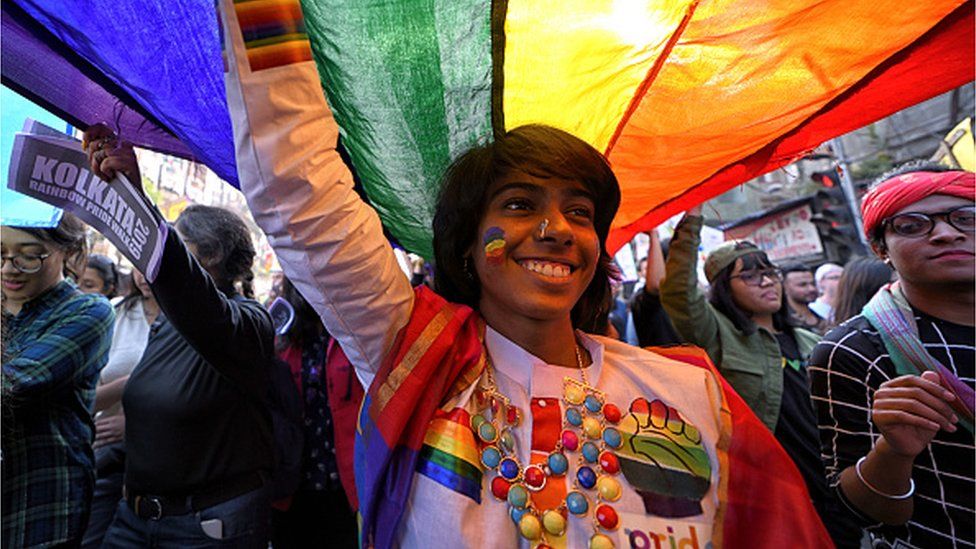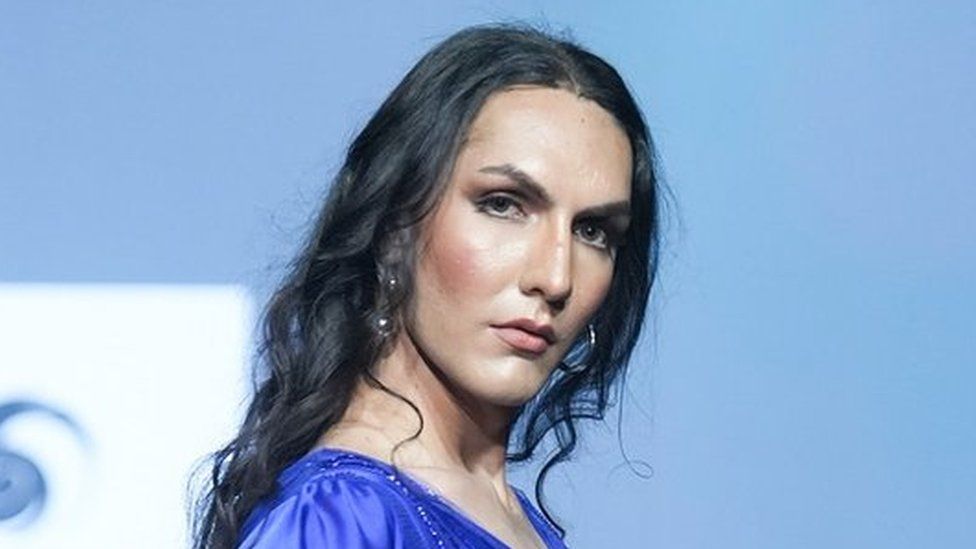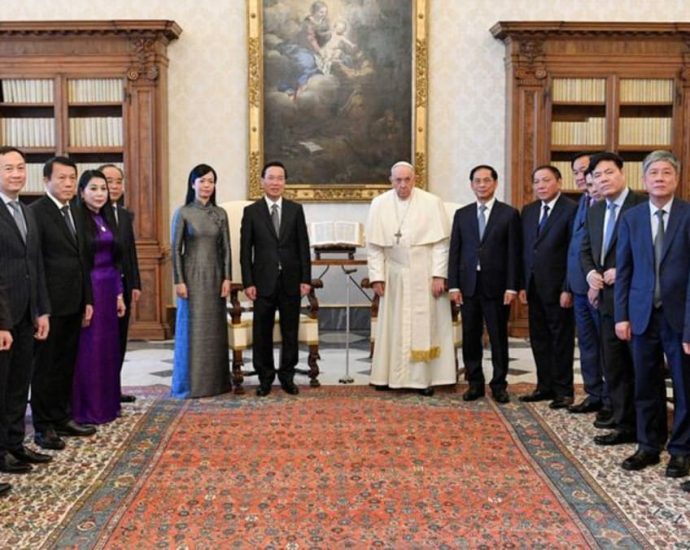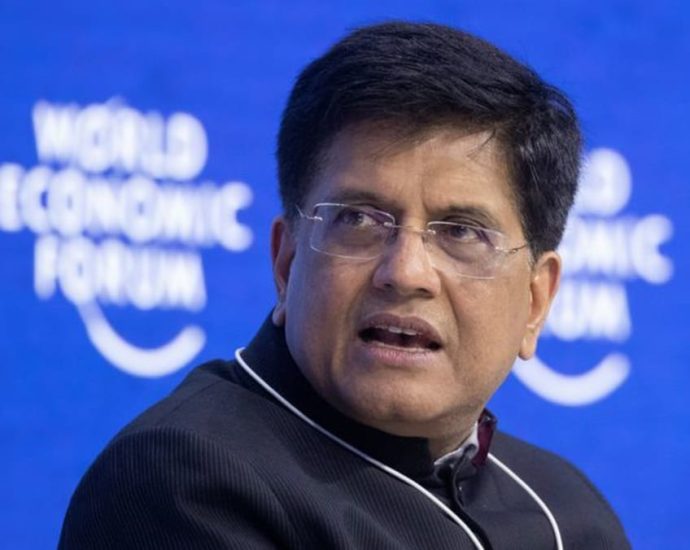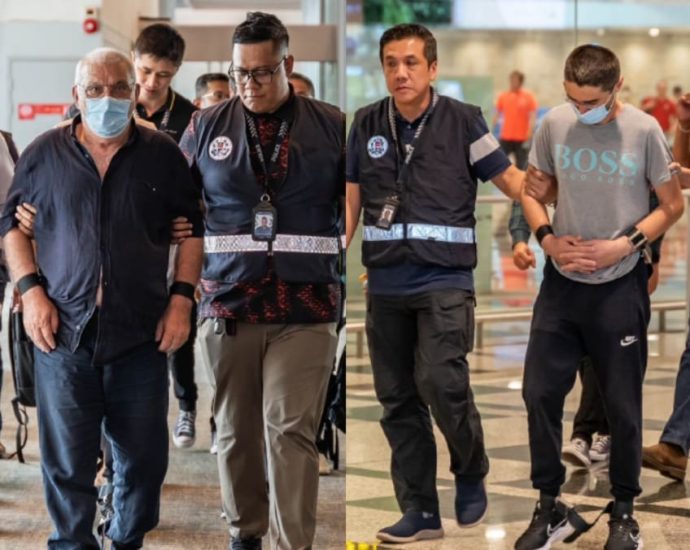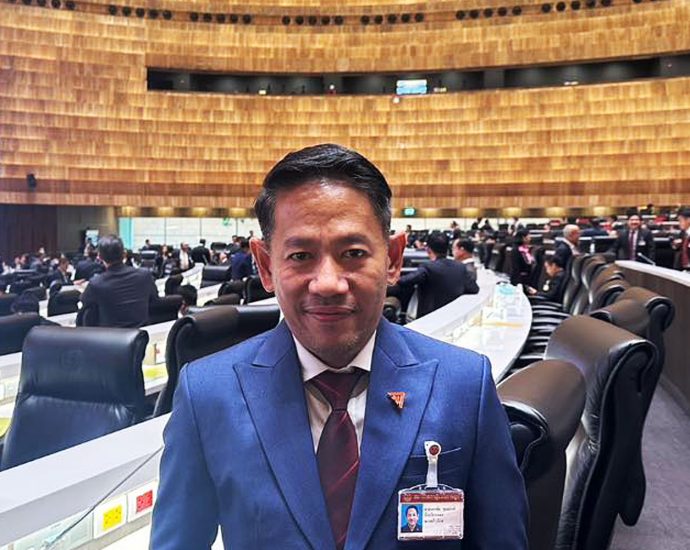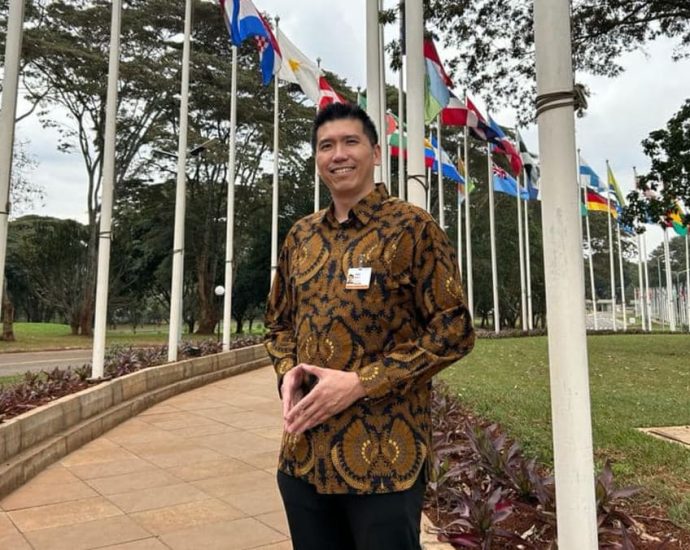US intelligence report says China likely supplying tech for Russian military
WASHINGTON: China is helping Russia evade Western sanctions and likely providing Moscow with military and dual-use technology for use in Ukraine, according to an unclassified US intelligence report released on Thursday (Jul 27). The assessment by the Office of the Director of National Intelligence (ODNI) was published by the USContinue Reading
India LGBTQ+ couples: ‘My parents were ready to kill me for their honour’
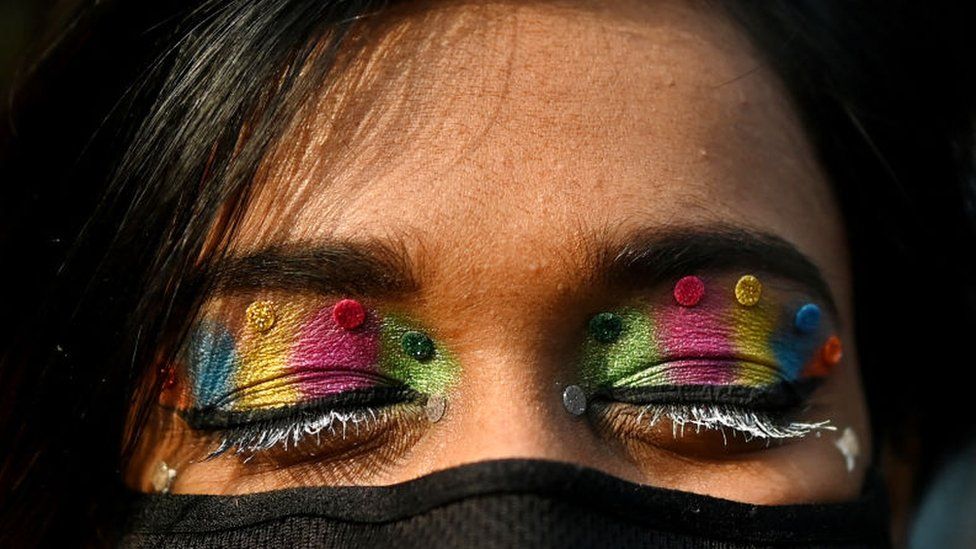 Getty Images
Getty ImagesWhen 17-year-old Manoj – who was recorded female sex at birth – told his family that he felt like a man and loved a woman, he almost got killed.
He says his parents refused to accept him, tied his hands and feet, beat him up badly and locked him up in a corner of the house. His father threatened to kill him.
“The violence was beyond anything I had imagined,” he says.
“I had thought whatever be my truth, I would be accepted, after all this was my family. But my parents were ready to kill me for their honour.”
For a woman in rural India, wanting to assert the right to identify as a trans man could lead to sharp retaliation.
Manoj says he was pulled out of the village school in one of India’s poorest states – Bihar in northern India – and forcibly married to a man twice his age.
“I even contemplated taking my own life, but my girlfriend stood by me through it all. That I am alive, and we are together now, is because she didn’t give up on me,” he says.
Now 22, and hiding in a big city for the past year, Manoj and his girlfriend, Rashmi, are eagerly awaiting the Supreme Court’s verdict on their petition asking for the legal right to marry.
India decriminalised gay sex in 2018, but same-sex marriages are still not recognised. The Supreme Court heard 21 petitions asking for legalisation this year and a ruling is expected soon.
While others have argued for the right to marry as a matter of equality, Manoj and Rashmi’s petition, filed jointly with two couples and four LGBTQ+ feminist activists, asserts that marriage is a way out of the brutal physical and mental violence inflicted on them by their own families.
“Legal recognition of our relationship is the only way out of this life of fear,” Manoj says.
India has half-a-million transgender people, as counted in the last census in 2011, a number that activists believe is a gross underestimation.
In 2014, the Supreme Court had ruled that trans people be recognised as the third gender. Five years later, India passed a law that prohibits discrimination in education, employment, healthcare and criminalises offences against them, including physical, sexual, emotional and economic abuse.
But violence from families is a complex challenge.
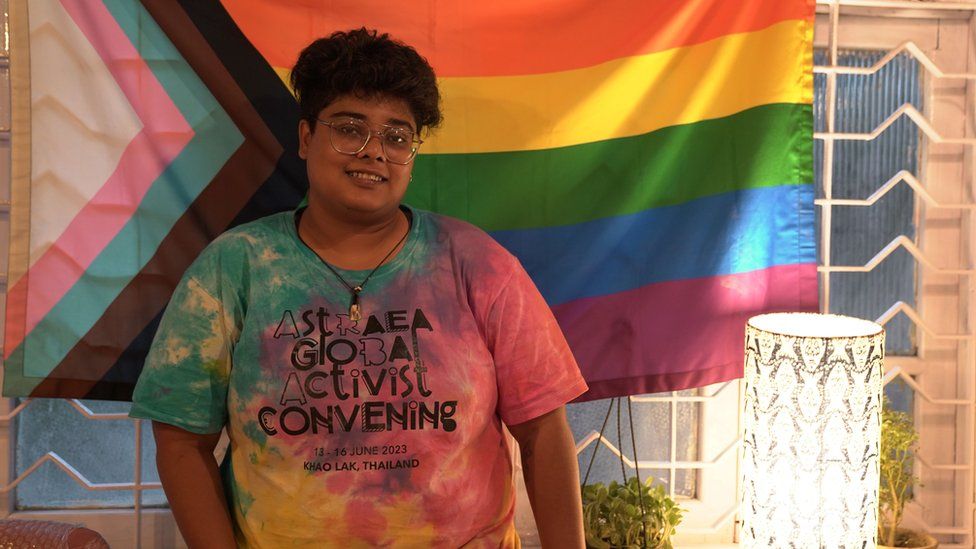
Violent families
Most laws and the society perceive family by blood, marriage, or adoption as the safest space for individuals, says Mumbai-based feminist lawyer Veena Gowda.
“Familial violence is not unknown to any of us, be it against the wife, children, or queer trans people. But it is made consciously invisible, as seeing it and acknowledging it would mean questioning the very institution of ‘family’,” she says.
Ms Gowda was part of a panel comprising a retired judge, lawyers, academicians, activists and a government social worker that heard detailed testimonies of familial violence faced by 31 people from the LGBTQ+ community in a closed-door public hearing.
Its findings were published in April this year in a report titled, ‘Apno ka bahut lagta hai’ (Our own hurt us the most) that recommended that LGBTQ+ people be given the right to choose their own family.
“Seeing the nature of violence faced by the testifiers, it would amount to denying them their very right to life and life with dignity if they do not have a right to choose their own family, free from violence,” Ms Gowda says.
“The right to marry would be a way of creating this new family and redefining it.”
A few months after his forced marriage, Manoj tried to get together again with Rashmi, but was tracked down by his “spouse”, who he says threatened to sexually assault both of them.
They escaped to the nearest railway station and boarded the first train that was leaving but he says they were found by their family and brought home to a fresh round of beatings.
“He was being forced to sign a ‘suicide letter’ that blamed me for his death,” Rashmi recounts.
Manoj’s resistance meant he was locked up again and his mobile phone taken away.
It was only after Rashmi contacted a LGBTQ+ feminist resource group and the women cell of the local police that they were able to get protection and escape Manoj’s family home.
They moved into a government shelter for trans people but had to move out soon as Rashmi is not a transgender person.
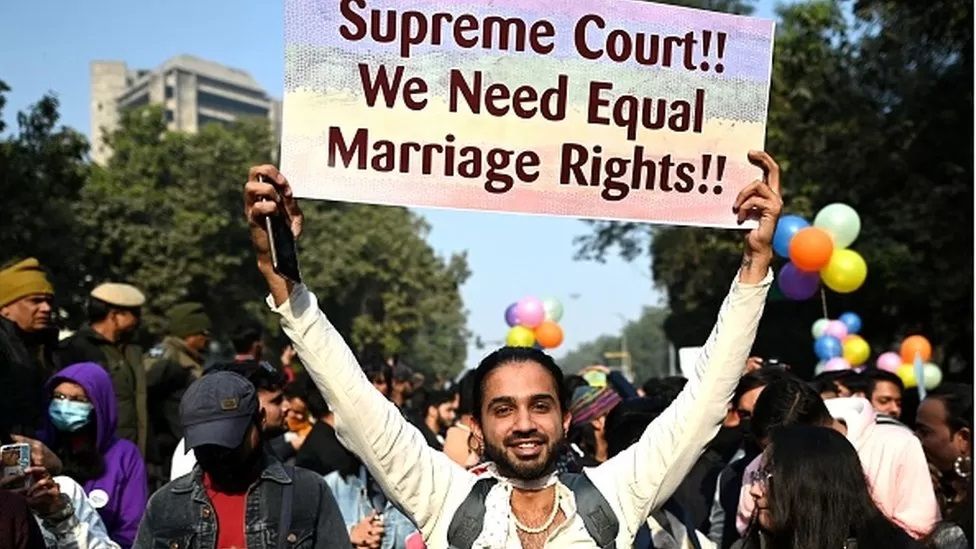
Escape and survival
Manoj was also able to get a divorce. But support systems that help in escaping violent families and building a new life are few.
Koyel Ghosh, who uses “they” and “them” as personal pronouns, is the managing trustee of Sappho for Equality, the first Lesbian-Bisexual-Transmasculine people rights collective in eastern India that started two decades ago. They remember clearly the day in 2020 they got a helpline call about a couple who had run away to a city in eastern India but then had to sleep on the footpath for seven nights.
“We rented a space and put them there so that they had temporary shelter for three months and they could focus on getting a job as that is the only way they can build a new life,” Koyel says.
Apart from social stigma, the threat of violence at home, disrupted education and forced marriages, many trans people also struggle to find stable employment.
India’s last census showed that their literacy rate at 49.76% was much lower than the country’s 74.04%.
According to a survey of 900 trans people in Delhi and Uttar Pradesh by the National Human Rights Commission in 2017, 96% had been denied jobs or forced into begging and sex work.
Saphho has set up a shelter to help runaway couples rebuild their lives – 35 couples have been housed there in the past two years.
It’s tough work. Koyel gets three to five distress calls daily and regularly reaches out to a support network of lawyers to find solutions.
“I have received death threats, faced mobs in villages, hostility in police stations because I am also open with my queer identity and they just can’t deal with it,” Koyel says.
When Asif, a trans man, and his girlfriend, Samina, reached out to Koyel, they were at their local police station in a village in eastern India.
Samina alleges that the constables called her a eunuch and said she should have died instead of going public with her relationship.
Childhood friends-turned-lovers, they had fled their families twice before but were brought back. This was their last chance to escape and they needed support.
“It was only when Koyel arrived that the police’s bad behaviour stopped. A senior officer chided their juniors for their prejudice and ignorance of laws as public servants,” Samina says.
Now living safely in a big city, the couple are co-petitioners with Manoj and Rashmi in the Supreme Court.
“We are happy now. But we need that piece of paper, a marriage certificate, to deter our families and community with fear of penalties or police action,” Asif says.
“If the Supreme Court doesn’t help us, we may have to die. We will never be accepted as we are, will remain on the run, always afraid of being separated,” he says.
Names of petitioners have been changed to protect their identities.
BBC News India is now on YouTube. Click here to subscribe and watch our documentaries, explainers and features.

Read more India stories from the BBC:

Women’s World Cup: Steel Roses outkick men in Chinese football
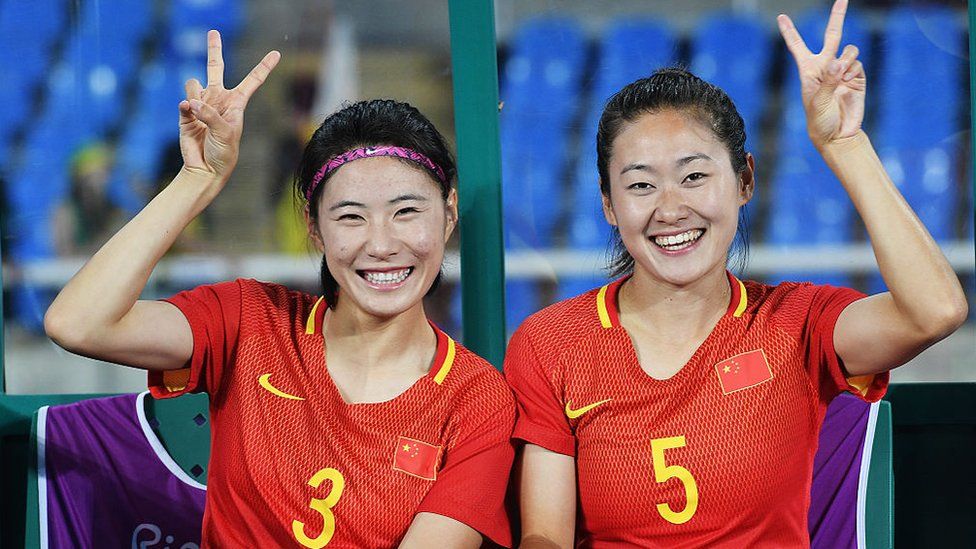 Getty Images
Getty ImagesAs a defender for China’s women’s national football team, Xue Jiao recalls how her squad did the impossible in 2015 when they ended the US team’s 11-year unbeaten streak at home in Los Angeles.
Xue says the display of willpower showed the world why Chinese fans call them the Steel Roses. And she hopes the team will live up to that name during the Women’s World Cup taking place in Australia and New Zealand.
“Everyone thought we would lose when the Americans invited us to join the match. But football is round, you never know what will happen until the very last second,” the 30-year-old Xue, now retired, tells the BBC.
“To beat one of the best teams in the world, in their home country, and break such a winning record… that victory put us over the moon,” says Xue, who will watch the World Cup from her home in the north-eastern city of Dalian.
China has work to do to get to the next round. After losing their first game to Denmark, they have to beat Haiti in Adelaide on Friday to remain hopeful for the next round when they face England next Tuesday.
Outside the World Cup however, the Steel Roses are outperforming their male counterparts in China, a remarkable feat in a country that has long associated the sport with men.
No matter the results at the World Cup, the team will be welcomed as heroes.
“The girls have demonstrated the great demeanour of Chinese women’s football, showed their desire for victory, and that was the most valuable quality passed on by generations of Chinese women’s football,” says Huang Jianxiang, one of the most famous football commentators in the country, after the first game.
“They looked much better than our men’s team,” read one comment from China’s social media platform Weibo.
Team spirit
For years, the women’s football team has been a source of pride while the men’s team is seen as a constant disappointment.
The women’s team is currently ranked 14th in the world while the men are in 80th place.
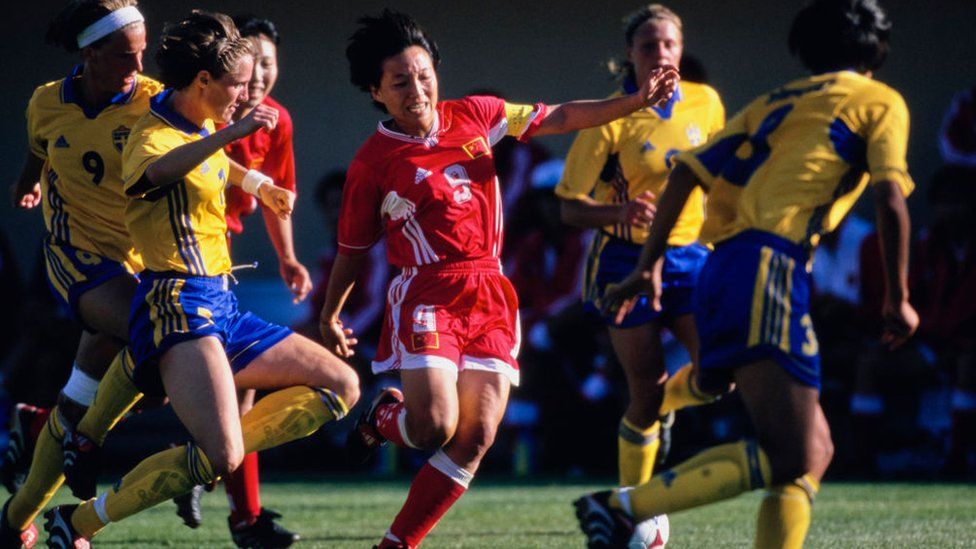
China’s men peaked in the early 2000s, when they qualified for the World Cup finals for the first – and only time – in 2002 and came second in the Asian Cup in 2004
The women’s team, on the other hand, has a much longer history of winning at international tournaments. They dominated the sport in the 90s and hosted the first Women’s World Cup in 1991.
The women’s team also entered its prime during that decade. Captained by Sun Wen, widely considered one of the greatest female footballers of all time, the team was invincible in Asia, and won silver medals at the 1996 Atlanta Olympics and the 1999 World Cup.
At home, the team is beloved as the Steel Roses, which is also the title of their theme song that millions of Chinese know by heart.
Xue says the keys to their success are intensive training and the close bond built among them during the sessions – a tradition passed from the old generations.
Their training hours are longer than most of the teams, she says. Each session usually takes two to two and half hours, and they train up to three times a day, from morning to evening.
“Even if the ball goes out, we will still chase it till the last second. That spirit has always been within the team,” she says.
The real national football team
While the team’s current play is not on the level of their 90s heyday, they are relatively strong compared with the men’s team.
So much so that many in China have been calling the women’s squad the country’s real gouzu, or national team – not the men.
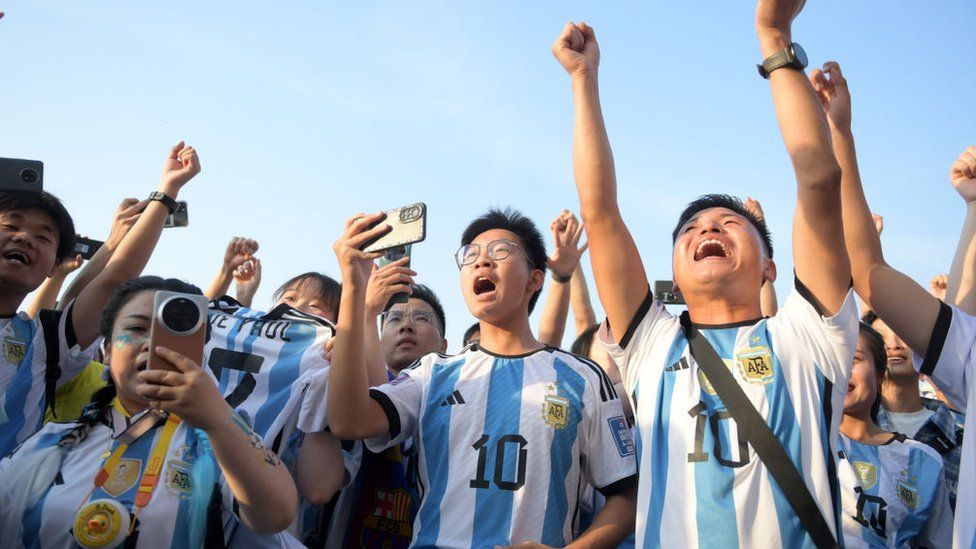
But the patriarchal nature of Chinese society remains on the men’s team’s side.
When the Chinese Football Association unveiled plans in 2016 to make China a football superpower – a vision set out by President Xi Jinping, most of the resources and strategies focused on the men.
“The national football development plans were essentially framed in male terms,” says Simon Chadwick, professor of Sport and Geopolitical Economy at Skema Business School in Paris.
Xue also concedes that football in China is “quite patriarchal”.
“The financial disparity is huge, and the attention we get is not on the same level. When it comes to men’s games, the seats would be filled up a lot of times, but when we compete, the spectators are usually just our families and friends.”
As in many countries, it’s also the men who rake in the money. According to the government-backed Shanghai Observer, the average income of clubs in the women’s professional football league is 60 to 90 times less than the men’s.
Will reforms work?
The gender divide has worked to the women’s advantage in several respects. They have been spared from the noise and dirty rumours that typically hound men and this has become obvious during this World Cup season.
Since November, at least 13 senior officials were investigated or punished as part of a crackdown on corruption and match-fixing.
The crackdown targeted men’s league and national teams – one of the officials is a legendary player and former head coach of the men’s national team Li Tie.
Big money on the men’s side of the sport likely brings with it more temptation to cheat, according to Mark Dreyer, author of Sporting Superpower, a book about China’s sporting ambitions.
There is also less intervention from the Communist Party officials when it comes to management and governance, giving them wider breathing room for development, argues Prof Chadwick.
“There are regular, unpredictable, and sometimes damaging state interventions into football,” says he. “And the Chinese government and Chinese football authorities went after men. They didn’t go after women.”
However, when the Chinese Football Association issued a reform plan for women’s football last year, many saw it as a signal of more state involvement that could throw the team off course.
The bottom-to-top approach that has worked to grow football contradicts the top-down set-up of Chinese society, says Mr Dreyer.
“All this [the orders] comes from the government and filters down through people who absolutely have no idea about football by large… China can’t make it work because it can’t resolve this contradiction between bottoms up and top down.”
Vatican and Vietnam agree on first post-war resident papal representative
The Vatican and Vietnam have agreed to have a Resident Papal Representative in Hanoi, they said on Thursday (Jul 27), a step years in the making that could lead to full diplomatic relations with the communist-run country and provide a model for ties with China. The move, first reported byContinue Reading
India asking for renegotiation of FTAs with Japan, South Korea: Trade minister
NEW DELHI: India has asked Japan and South Korea to renegotiate their free-trade agreements (FTAs) with the South Asian nation to make it “more balanced and equitable”, India’s trade minister said on Thursday (Jul 27), amid a widening trade gap with the countries. “Japan and Korea – we opened ourContinue Reading
2 men who allegedly stole S$134,000 from Serangoon Road money changer arrested in KL, returned to Singapore
SINGAPORE: Two men were arrested in Kuala Lumpur and returned to the Singapore police after they allegedly stole about S$134,000 (US$100,800) from a money changer along Serangoon Road. The alleged offence took place on Dec 2 last year, said the Singapore Police Force in a news release on Thursday (JulContinue Reading
MFP MP quits over criminal record
Nakhonchai turned in by coalition ally Sereepisuth over 1999 petty theft conviction
PUBLISHED : 27 Jul 2023 at 21:23

A Move Forward Party MP for Rayong, Nakhonchai Khunnarong, announced his resignation on Thursday after admitting he had been convicted in a theft case and served 18 months in jail more than two decades ago.
Nakhonchai, better known as “Ice Rayong”, clarified questions surrounding his criminal record on Facebook after Seri Ruam Thai Party leader Sereepisuth Temeeyaves on Wednesday claimed the MP was an ex-con and should not have been allowed to run for a House seat.
Nakhonchai, who was elected in Constituency 3, admitted he had served time in jail but said he believed the offence did not bar him from standing in the election.
He apologised to voters and said he would take responsibility by stepping down as an MP. He added that he was prepared to fight any charges, including contesting another election if need be.
The case dated back to October 1999, he said, when he was partying with a group of friends. He said he found a woman’s wristwatch but was arrested by police along with a friend who confessed to stealing it.
At the police station, he said he unknowingly signed a confession. He was sentenced to three years in jail, but the sentence was cut in half due to his confession.
“I believe my past didn’t make me unqualified to run. I don’t believe it’s one of the offences in the charter,” he wrote.
The election office in Rayong reportedly forwarded an investigation report into his background to the Election Commission but the latter had not had time to study it before the May 14 polls.
Pol Gen Sereepisuth is a member of the eight-party coalition which — for now, at least — includes Move Forward and his own party. In recent days he has made several comments critical of the Move Forward leadership and suggested they need to sacrifice themselves so that the Pheu Thai Party can form a government.
Super typhoon Doksuri targets China after ferry capsize off Manila kills 25
The storm cut power to more than 49,000 households across Taiwan, although supply has since been restored to most. “Typhoon Doksuri should not be underestimated,” Chen Chi-mai, mayor of the southern port city of Kaohsiung, said on Facebook late on Wednesday. Taiwan’s armed forces pressed ahead with a large-scale anti-landing drillContinue Reading
Man held for âraping minorâ
Police say more young girls may have been victims of man arrested in Ratchaburi
PUBLISHED : 27 Jul 2023 at 21:07

Police on Thursday arrested a man accused of sexually assaulting a 9-year-old girl in Damnoen Saduak district of Ratchaburi province in March.
The suspect, identified only as Khwanchai, became close to the victim after he started volunteering to take her to school, according to Pol Maj Gen Theeradej Thamsuthee, commander of the investigation division of the Metropolitan Police Bureau.
He allegedly threatened the victim not to tell anyone about what happened before fleeing to tambon Don Klang in Damnoen Saduak.
He was arrested in tambon Don Kruay on Thursday on a warrant issued by the provincial court.
According to police, the 33-year-old suspect admitted to the accusations against him, saying that he committed sexual crimes as a form of revenge for being raped himself at the age of 12.
Police said the suspect had earlier served four years in prison for raping a 9-year-old girl in 2015.
The investigation will be expanded to determine if he committed other sexual offences since his release from prison in 2019.
According to an initial investigation, at least three girls, aged between 9 and 13, have been assaulted by the suspect, including the 9-year-old in 2015.
Scientist Winston Chow first Singaporean to be elected to UN’s top climate body
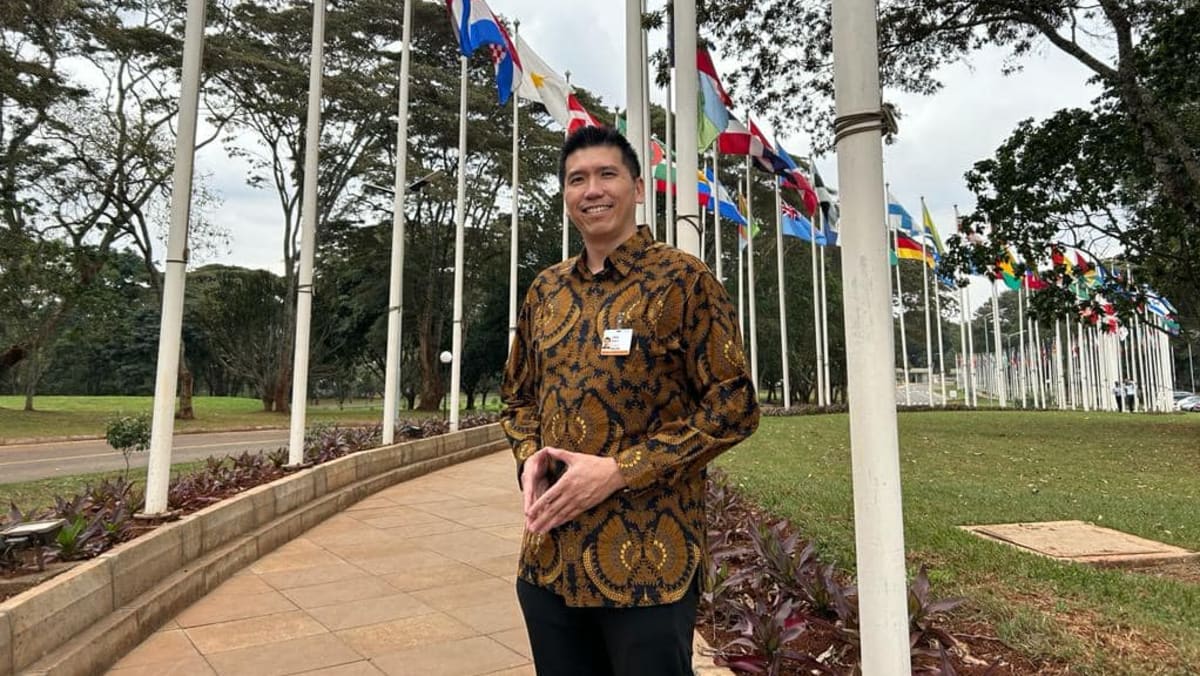
SINGAPORE: Associate Professor Winston Chow has been elected co-chair of the bureau of the Intergovernmental Panel on Climate Change (IPCC), the United Nations’ top climate science body.
A Lee Kong Chian Research Fellow at the Singapore Management University, Assoc Prof Chow had previously served as a lead author for the IPCC’s Sixth Assessment Report on Impacts, Adaptation and Vulnerability.
His nomination was one of 17 for the role of co-chair. Following his successful election, he will work with Professor Bart van den Hurk of the Netherlands as fellow co-chairs.
According to the IPCC’s website, the 34-member IPCC Bureau provides guidance to the panel on scientific and technical aspects of its assessments, in addition to giving advice on management and strategic issues.
Assoc Prof Chow, who specialises in urban climate, will head the Working Group II on Impacts, Adaptation and Vulnerability.
The Working Group II assesses the “vulnerability of socio-economic and natural systems to climate change, negative and positive consequences of climate change and options for adapting to it”, according to the IPCC.

